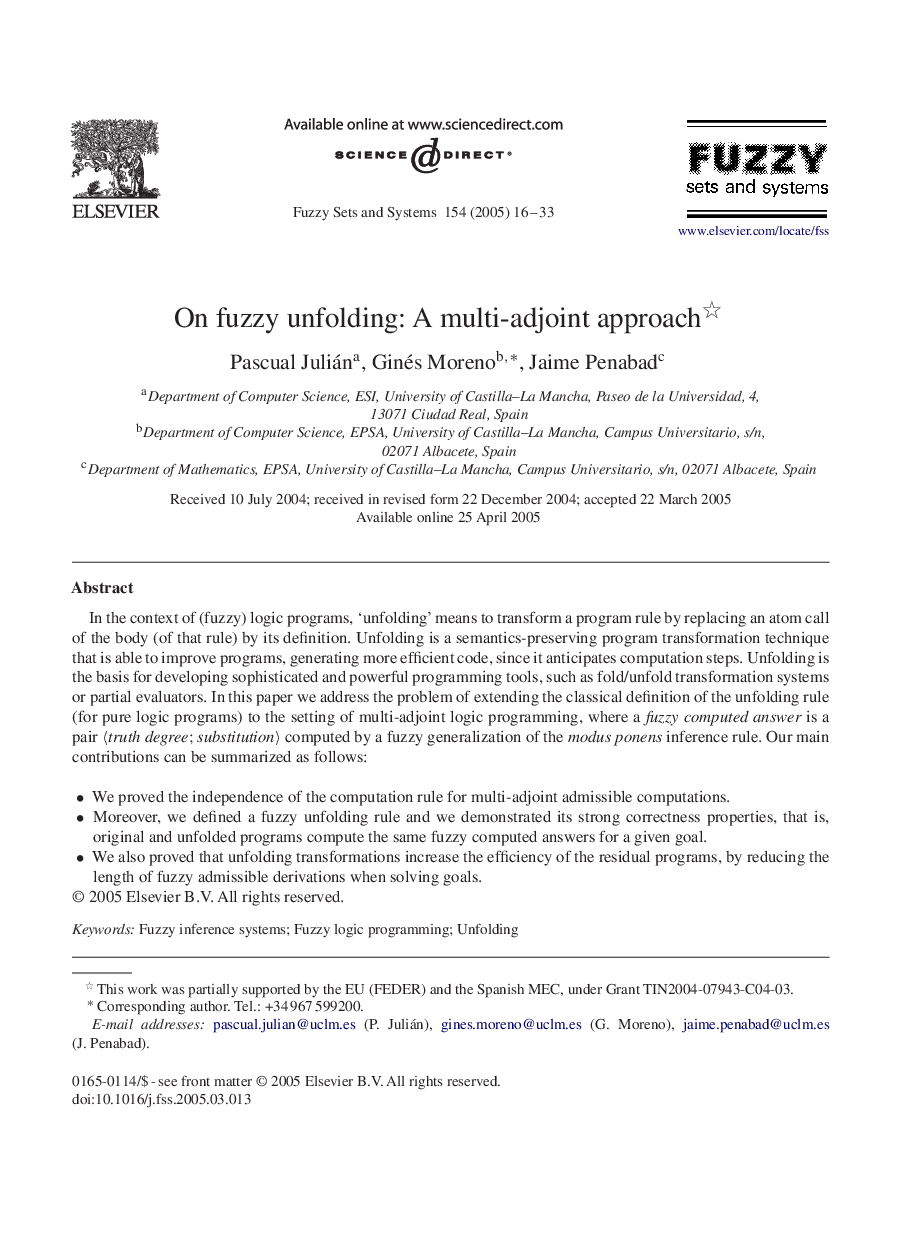| Article ID | Journal | Published Year | Pages | File Type |
|---|---|---|---|---|
| 10323923 | Fuzzy Sets and Systems | 2005 | 18 Pages |
Abstract
In the context of (fuzzy) logic programs, 'unfolding' means to transform a program rule by replacing an atom call of the body (of that rule) by its definition. Unfolding is a semantics-preserving program transformation technique that is able to improve programs, generating more efficient code, since it anticipates computation steps. Unfolding is the basis for developing sophisticated and powerful programming tools, such as fold/unfold transformation systems or partial evaluators. In this paper we address the problem of extending the classical definition of the unfolding rule (for pure logic programs) to the setting of multi-adjoint logic programming, where a fuzzy computed answer is a pair ãtruth degree;substitutionã computed by a fuzzy generalization of the modus ponens inference rule. Our main contributions can be summarized as follows:
Related Topics
Physical Sciences and Engineering
Computer Science
Artificial Intelligence
Authors
Pascual Julián, Ginés Moreno, Jaime Penabad,
